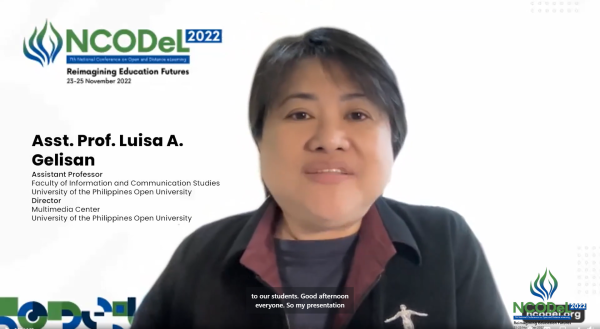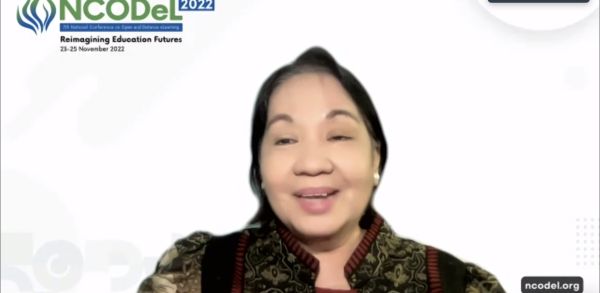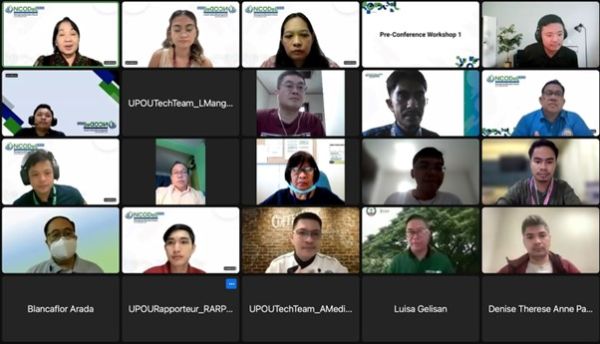As an opening salvo for the upcoming 7th National Conference on Open and Distance eLearning (NCODeL), two pre-conference workshops were held on 22 November 2022 to prepare several teacher-participants for the conference. The said workshops aim to equip participants in designing agile and flexible technology-enabled learning and in creating courses using Massive Open Online Courses (MOOCs) and Open Educational Resources (OERs).

With the first pre-conference workshop entitled “Designing for Flexibility, Agility, and Sustainability: Integrating Technology to the F2F Classroom Teaching and Learning”, the participants were informed of the importance of the conduct of remote teaching in the post-pandemic phase of our society. She encouraged the educators to engage in flipped or hybrid modalities of learning as it would be beneficial for the learners to have self-paced learning. Chancellor Bandalaria further cited an article from Cornell University which states that hybrid learning offers the “best of both worlds” through technology by supporting “a more diverse range of learners by offering flexibility, more options for learning, and integration of activities that lead to better learning”.

The second pre-conference workshop entitled “Designing Course Using MOOCs as OERs” imparted knowledge on the basics of OERs and MOOCs through Chancellor Bandalaria and Faculty of Information and Communication Studies (FICS) Assistant Professor Luisa A. Gelisan.
Assistant Professor Gelisan shared her knowledge on what an OER is and even showcased a few samples in the UPOU setting, specifically the UPOU Networks. It was also emphasized that OERs aim to equalize the access towards education for both educators and learners across the world as these are available on the Internet as well as other public repositories.

Dr. Bandalaria, on the other hand, delved into the concept of MOOCs and how they could be used as an OER. She defined MOOCs as online courses which are unlimited, readily available online, and aimed to have specific learning outcomes. Since MOOCs are free online courses, they could further help in achieving lifelong learning for students. These courses can be unbundled into micro-courses through the concept of micro-credentialing. It could also serve as another form of teaching teacher resource to help the students understand the current lessons that they are taking.

A total of forty-one (41) teacher-participants of the foregoing workshops were left with learning activities for them to accomplish in order to design courses flexible enough to keep up with the current tides of higher education as well as open and distance learning.
NCODeL 2022 is set to trailblaze new heights in open and distance learning on 23-25 November 2022. To learn more, visit ncodel.org.
Written by NCODeL 2022 Publicity Committee








